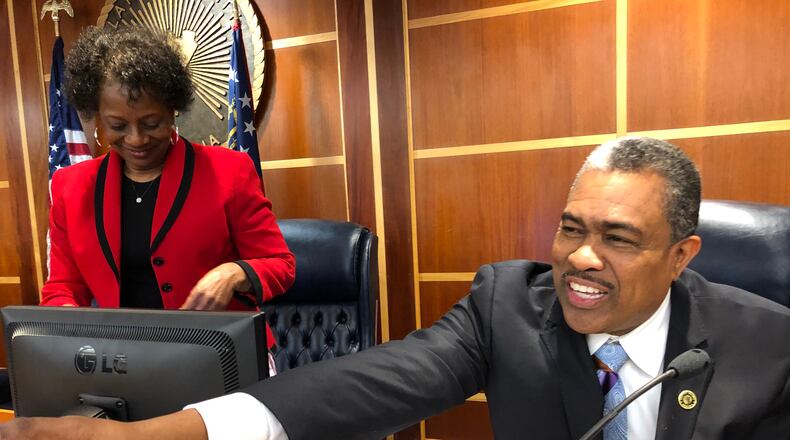Clayton County residents who wish to comment on what’s going on in their community during board of commissioners meetings will have to wait until the end of the gatherings to have their voices heard.
In a 3-2 vote earlier this week, the south metro Atlanta county commission moved public comments to the end of meetings, despite the plea of a resident and two members of the board.
“Allow us to continue to speak,” Clayton resident Drew Andrews said, adding he recognizes commissioners sometimes are attacked during public comment. “As elected officials, you have been anointed with armor. So you need to put on your tough skin and allow the people to speak and express themselves.”
The decision is the latest salvo in a long-running battle between commissioners and residents over public comments.
In 2017, the commission stopped live-streaming public comments on taxpayer-funded CCTV 23 because of what they considered to be toxic feedback from residents. Then, in 2018, commissioners brought public comments back to CCTV 23, but relegated them to the end of meetings.
The next year, public comments returned to the beginning of each meeting.
Now with the latest change, residents will have only two minutes to speak instead of three and the overall time set aside for public comments has been reduced.
Commissioner Felicia Franklin suggested the public was to blame for public commenting being pushed to the end of meetings. She said she has been attacked during meetings by residents — even by some who were in the room on Tuesday — and has had to seek a “call to order” when residents unleash accusations.
“At the end of the day, voices are important, but we have to do things decent and in order,” said Franklin, who in 2019 championed comments at the beginning of meetings, but voted to move them to the end on Tuesday.
Commissioner DeMont Davis said he was disappointed in the change, especially as it was made just moments after civil rights icon and former Atlanta Mayor Andrew Young used public comments time to pitch a Clayton County aquaponics facility.
The board warmly received Young with a standing ovation and gave him extra time to speak and later unanimously approved the project he was promoting.
Davis chastised commissioners for the change.
“We have a Black board that wants to take the rights of our citizens away to speak publicly,” he said, adding that the effort effectively puts voters “at the end when nobody is there.
“That’s the equivalent to Jim Crow,” he said.
About the Author





